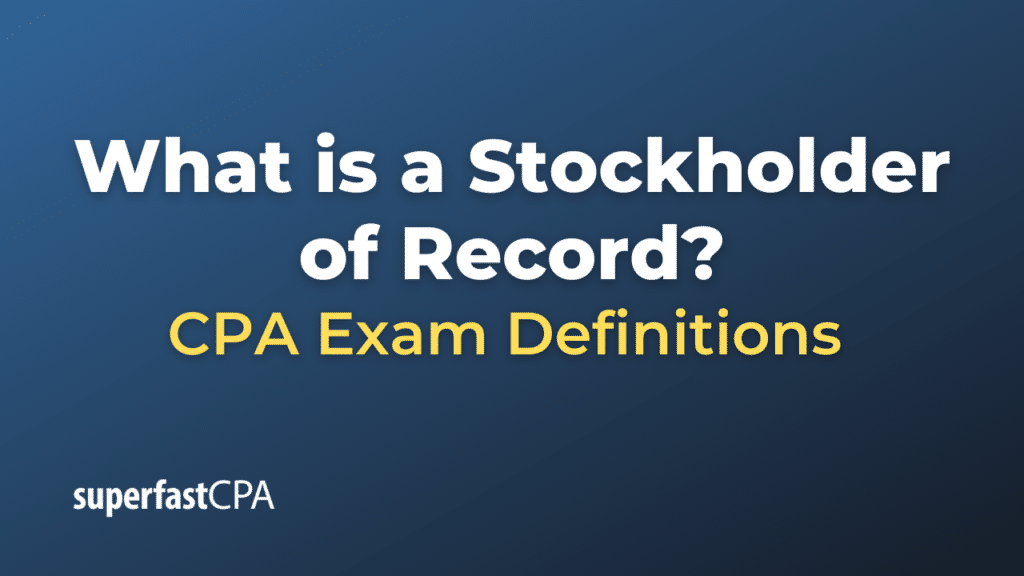Stockholder of Record
A stockholder of record, also known as a shareholder of record, refers to an individual or entity that is officially and legally recognized as the owner of shares in a corporation as of a specific date. This date is typically recorded in the official shareholder registry of the corporation.
Being recognized as the stockholder of record has particular significance for certain corporate actions and events:
- Dividend Payments : Corporations pay dividends to the stockholders of record as of a specific date, often termed the “record date.” If you become a shareholder after this date, you would not be entitled to that particular dividend distribution.
- Voting: Only stockholders of record as of the record date are entitled to vote in corporate elections, such as voting for members of the board of directors or on other significant company decisions.
- Corporate Communications: The stockholders of record typically receive annual reports, notices of shareholder meetings, and other official communications directly from the company.
- Rights Offerings: If a company issues a rights offering, allowing shareholders to buy additional shares often at a discounted price, the stockholders of record are the ones who receive these rights.
Example of a Stockholder of Record
Let’s delve into a hypothetical example to better understand the concept of a stockholder of record.
Scenario:
GreenLeaf Energy:
GreenLeaf Energy is a renewable energy company that has been performing well and decides to distribute dividends to its shareholders.
Dividend Announcement:
GreenLeaf Energy announces a dividend payment of $2.00 per share. In the announcement, they specify:
- Record Date: July 20th
- Ex-dividend Date: July 18th
- Payment Date: August 1st
Transactions and Outcomes:
- Mr. Williams:
- Purchase Date: July 15th
- Since Mr. Williams bought the shares before the ex-dividend date, he will be recognized as a stockholder of record on the record date of July 20th.
- Outcome: Mr. Williams will receive the dividend payment on August 1st.
- Ms. Garcia:
- Purchase Date: July 18th (the ex-dividend date)
- Even though Ms. Garcia bought the shares on the ex-dividend date, she won’t be listed as a stockholder of record on July 20th because purchases made on or after the ex-dividend date don’t qualify for the upcoming dividend.
- Outcome: Ms. Garcia will NOT receive the dividend payment on August 1st.
- Mr. Patel:
- Purchase Date: July 21st
- Mr. Patel bought the shares after the record date. Therefore, he will not be a stockholder of record for this dividend payment.
- Outcome: Mr. Patel will NOT receive the dividend payment on August 1st.
Annual Meeting:
GreenLeaf Energy schedules its Annual General Meeting (AGM) on August 15th. The company sets the record date for the meeting as July 30th. Only those who are stockholders of record as of July 30th will receive the invitation to the AGM and have the right to vote.
- Mr. Williams and Ms. Garcia, having purchased their shares before July 30th, are both stockholders of record for the AGM and can attend and vote.
- Mr. Patel, who also bought shares before July 30th, is likewise a stockholder of record for the AGM and has the same rights.
Conclusion:
Understanding the significance of the “record date” is crucial for investors, especially if they are aiming to receive dividends or participate in vital corporate decisions. The stockholder of record status ensures that companies have a clear and organized way to determine who is entitled to dividends, voting rights, and other shareholder benefits for any given corporate action.













